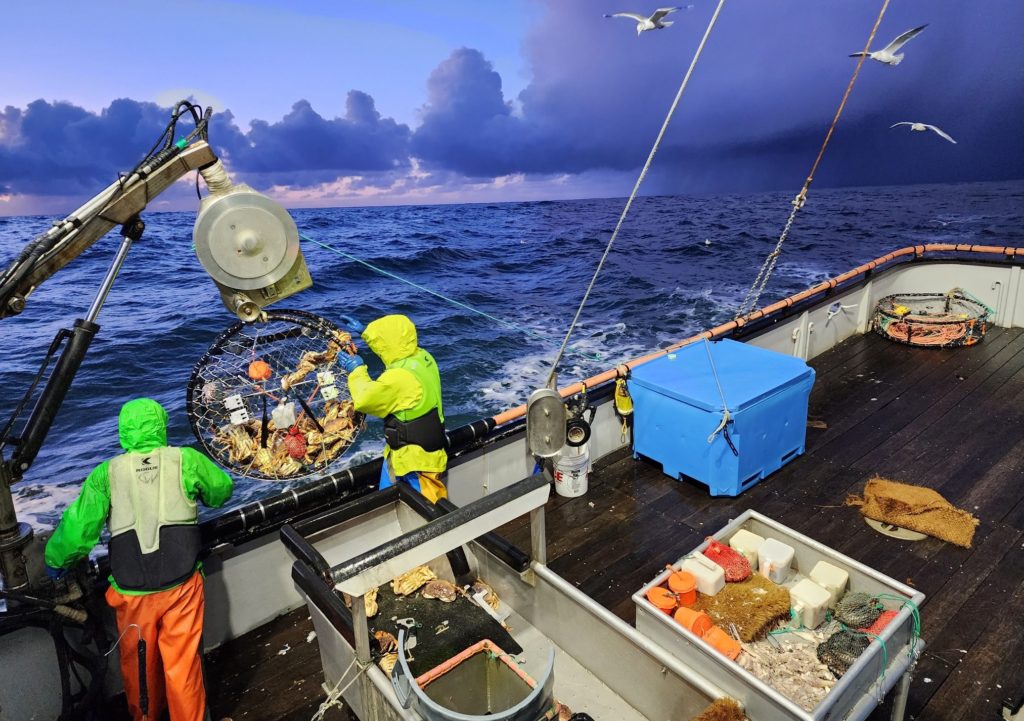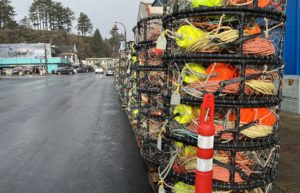
By IAN ROSE/Oregon Capital Chronicle
CORVALLIS — Climate change is forcing fish to move to cooler waters to survive, which means big changes for Oregon’s coastal communities and for international politics.
A team led by Oregon State University professor James Watson just won a $1.4 million grant from the U.S. Department of Defense to study the migrations to map out what they mean for security.
Fishing is big business in Oregon and worldwide. The National Oceanic and Atmospheric Administration estimates the value of U.S. fisheries at $253 billion, and they support 1.7 million American jobs. Commercial fishing pays $500 million in wages in Oregon alone. Recently, ocean warming and drought have caused declines and crashes in several West Coast fisheries, including this year’s complete closure of fishing for Chinook salmon in Oregon and California.
“Even if the abundance of fish doesn’t diminish, climate change is going to move where the fish are,” Watson told the Capital Chronicle.

Because of the importance of fisheries, not just economically but also in terms of food and culture, these changes can lead to conflict. In some places around the world, those conflicts are already happening.
Watson points to the Galapagos Islands off of Ecuador, where over 300 Chinese fishing vessels recently dropped anchor just outside of the legal boundary around the islands. The Ecuadorian government and others accused China of plundering this well-known ecological reserve, threatening vital habitat and Ecuador’s economy. Argentina’s coast guard has fired on Chinese vessels and sunk them, with crew onboard, for violating that country’s fishing waters.
Outside countries’ exclusive economic zones, which stretch 200 miles from their coasts, the laws around fishing are looser and harder to enforce. Adding to the complexity of the issue is illegal fishing, which accounts for one out of every three fish caught in the world.
“It’s kind of the Wild West out there,” said Watson.
The $1.4 million grant is part of the Department of Defense’s Minerva Research Initiative. Watson’s team won one of 11 grants selected from 130 applicants for studies to prepare for global security challenges in the next century. Other grants covered topics like food security in Africa, Russian propaganda and preventing nuclear weapons in space. The grants totaled $18 million.
Watson sees conflict over fisheries in a changing climate as one possible outcome, but hopes that studies like this will not only help to understand it better, but also to prevent it.
“It doesn’t necessarily have to lead to conflict. It’s just a challenge to the community to deal with in either a good way or a bad way. We’re trying to kind of work towards an understanding that allows us to create foresight and policies that hopefully steer us toward a good set of cooperative outcomes,” Watson said.
The research team includes scientists and economists from Oregon State, Cornell University, World Wildlife Fund and the University of Exeter in England. The three-year project covered by the grant will begin later this year.
- Oregon Capital Chronicle is a nonprofit Salem-based news service that focuses its reporting on Oregon state government, politics and policy.


